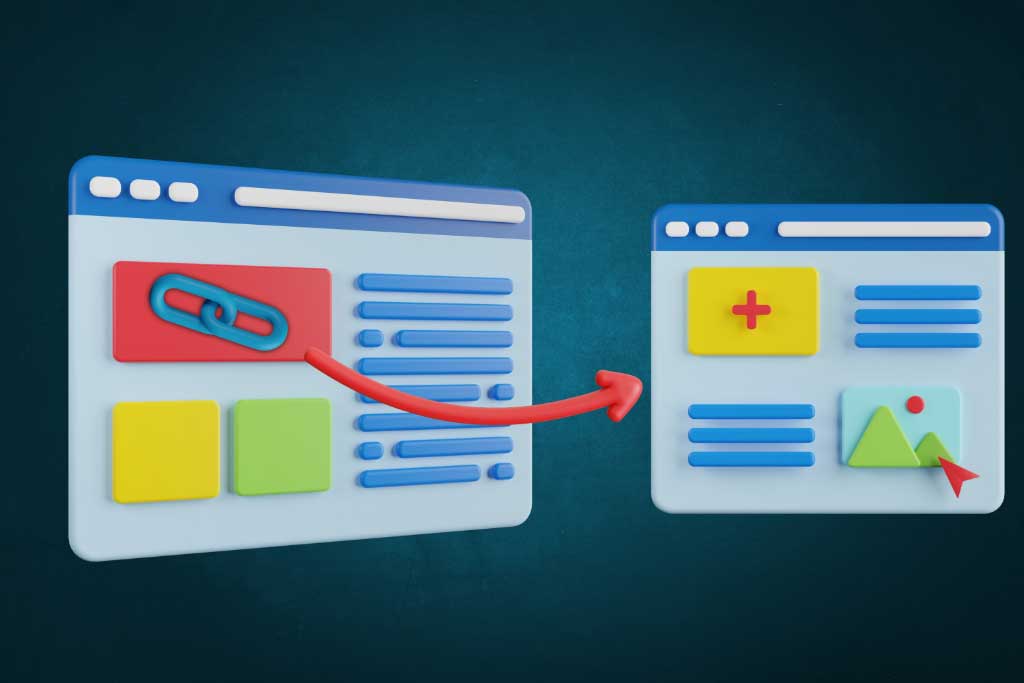In a world dominated by social media and rapidly evolving digital platforms, one might think email marketing is a relic of the past. However, savvy marketers know that email remains a powerful tool for connecting with customers and driving business growth. Email marketing is an indispensable part of any marketing strategy, as it has an unbeatable return on investment and can reach audiences directly. In this blog post, we’ll explore ten compelling reasons why email marketing is important for businesses today.
Whether you’re a small business owner or a marketing professional, you’ll discover how email can transform your customer engagement and boost your bottom line. Let’s get started!
10 Reasons Email Marketing is a Game-Changer for Businesses
Unlock powerful strategies with email marketing. Learn how it boosts engagement and revenue. Click to transform your business communication now!
1. Direct Connection with Your Audience
Email marketing provides a direct line to your customers, allowing you to communicate with them. Unlike social media, where algorithms dictate who sees your message, emails land straight in your subscribers’ inboxes. This direct connection enhances the likelihood of your content being seen and acted upon.
Building a quality email list ensures reaching an audience genuinely interested in your products or services. By segmenting your email lists based on customer preferences, you can tailor your messages to meet specific needs and interests, increasing engagement and conversion rates.
Furthermore, email marketing offers an unparalleled level of personalization. Using customer data, you can craft personalized messages that resonate with individual subscribers, fostering a stronger relationship and loyalty to your brand.
2. Cost-Effective Marketing Strategy
Email marketing is one of the most cost-effective marketing strategies available. With minimal costs associated with sending emails, businesses of all sizes can leverage this channel to reach a large audience without breaking the bank. Email marketing offers an impressive return on investment compared to traditional advertising methods.
For small businesses with limited budgets, email marketing provides a platform to compete with larger companies. Smaller companies can achieve impressive results and level the playing field by creating valuable content and building a loyal subscriber base.
Email marketing’s affordability also allows for experimentation. By testing different campaigns and strategies, you can gain valuable insights into what resonates with your audience, refining your approach for maximum impact.
3. Boosts Customer Engagement
Email marketing is a powerful tool for boosting customer engagement. By consistently delivering valuable content to your subscribers, you can keep your brand top-of-mind and encourage interaction. Engaged customers are more likely to make a purchase and become brand advocates.
Regularly sending newsletters, promotions, and updates informs your audience about your latest offerings and initiatives. This regular communication ensures that your brand remains relevant and strengthens the relationship between you and your customers.
Interactive emails like surveys or polls allow customers to engage directly with your brand. By encouraging feedback and participation, you demonstrate that you value your customers’ opinions, fostering a sense of community and loyalty.
4. Builds Strong Customer Relationships
Building strong customer relationships is at the core of successful email marketing. You can establish trust and credibility with your audience by consistently delivering valuable and relevant content. Over time, this trust translates into loyalty and repeat business.
Email allows for ongoing communication, enabling you to nurture leads and guide them through the sales funnel. You position your brand as a trusted resource and partner by providing useful information and addressing customer pain points.
Additionally, email marketing offers opportunities for personalization that deepen customer relationships. By tailoring content to individual preferences and behaviors, you demonstrate an understanding of your customers’ needs, fostering a sense of connection and loyalty.
5. Drives Website Traffic
Email marketing is a powerful driver of website traffic. You can encourage subscribers to explore your offerings and learn more about your brand by including links to your website in your emails. Increased website traffic can lead to higher conversions and sales.
Emails that include compelling calls-to-action (CTAs) motivate subscribers to take specific actions, such as visiting a landing page, signing up for a webinar, or downloading a resource. Clear and enticing CTAs guide readers toward your desired outcome, driving engagement and conversions.
Furthermore, email marketing effectively promotes new content, products, or services on your website. By highlighting these offerings in your emails, you can generate interest and encourage subscribers to explore your website further.
6. Enhances Brand Awareness
Consistent email marketing campaigns enhance brand awareness by keeping your brand at the forefront of your audience’s minds. Regularly communicating with your subscribers ensures that your brand remains relevant and recognizable.
Email marketing allows you to showcase your brand’s personality and values. Incorporating your brand’s voice and visual elements into your emails creates a cohesive and memorable experience for your subscribers.
Additionally, email marketing provides opportunities for storytelling. Sharing your brand’s story, mission, and successes creates an emotional connection with your audience, strengthening brand loyalty and advocacy.
7. Provides Measurable Results
One significant advantage of email marketing is the ability to track and measure results. Email marketing platforms offer robust analytics tools that provide insights into campaign performance, including open, click-through, and conversion rates.
By analyzing these metrics, you can gain valuable insights into what resonates with your audience and refine your strategies for maximum impact. A/B testing different subject lines, content, and CTAs can help optimize your campaigns for better results.
The ability to measure results also allows you to demonstrate the effectiveness of your email marketing efforts to stakeholders. By showcasing the impact of your campaigns, you can secure buy-in and support for future initiatives.
8. Increases Sales and Revenue
Email marketing is a powerful tool for driving sales and revenue. You can encourage purchases and boost your bottom line by sending targeted promotions and offers to your subscribers. Well-timed emails can also nurture leads and guide them toward a purchase decision.
Email marketing allows for personalized product recommendations based on customer behavior and preferences. By suggesting relevant products or services, you increase the likelihood of conversions and upsells.
Abandoned cart emails are another effective tactic for recovering lost sales. By reminding customers of items left in their cart and offering incentives to complete their purchases, you can increase conversions and revenue.
9. Supports Customer Retention
Retaining existing customers is often more cost-effective than acquiring new ones. Email marketing is crucial to customer retention by keeping your audience engaged and informed about your brand’s offerings.
By sending personalized and relevant content, you can remind customers of the value your brand provides and encourage repeat purchases. Loyalty programs and exclusive offers can further incentivize customers to remain loyal to your brand.
Email marketing also provides opportunities for re-engagement. By contacting inactive subscribers with targeted campaigns, you can reignite their interest in your brand and encourage them to become active customers again.
10. Adapts to Mobile Consumption
With the increasing use of mobile devices, email marketing must adapt to meet the needs of mobile users. Fortunately, email marketing is inherently mobile-friendly, allowing you to reach customers wherever they are.
Responsive email designs ensure that your emails display correctly on various devices, providing a seamless experience for your subscribers. By optimizing your emails for mobile, you increase the likelihood of engagement and conversions.
Additionally, email marketing allows for quick and easy sharing. Subscribers can forward emails to friends and family with a simple tap, expanding your reach and increasing brand exposure.
What Is Growth Marketing?
Growth marketing is a dynamic approach focusing on expanding an organization’s reach and customer base through innovative strategies. Unlike traditional marketing, which often prioritizes brand awareness and customer acquisition, growth marketing emphasizes sustainable, long-term growth by leveraging data-driven insights and experimentation.
Growth marketing involves constantly testing and iterating various tactics, such as A/B testing, SEO optimization, and personalized content, to improve user engagement and conversion rates. By focusing on the entire customer lifecycle, from acquisition to retention and beyond, growth marketing aims to maximize each customer’s value and drive measurable business results.
This approach requires a deep understanding of customer behavior and a willingness to adapt quickly to changing market trends. It is crucial for businesses aiming to thrive in today’s competitive landscape.
Conclusion
Email marketing remains essential for businesses looking to connect with their audience, drive engagement, and boost revenue. By leveraging the power of email, you can build strong customer relationships, enhance brand awareness, and achieve measurable results.
Now is the time to harness the full potential of email marketing for your business. Create engaging campaigns, personalize your messages, and optimize your strategies for maximum impact. For those looking to explore further, consider seeking additional resources or consulting with email marketing experts to refine your approach and achieve your marketing goals.




